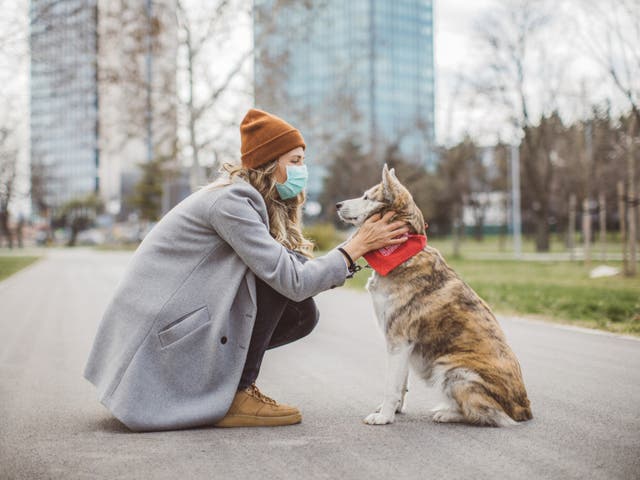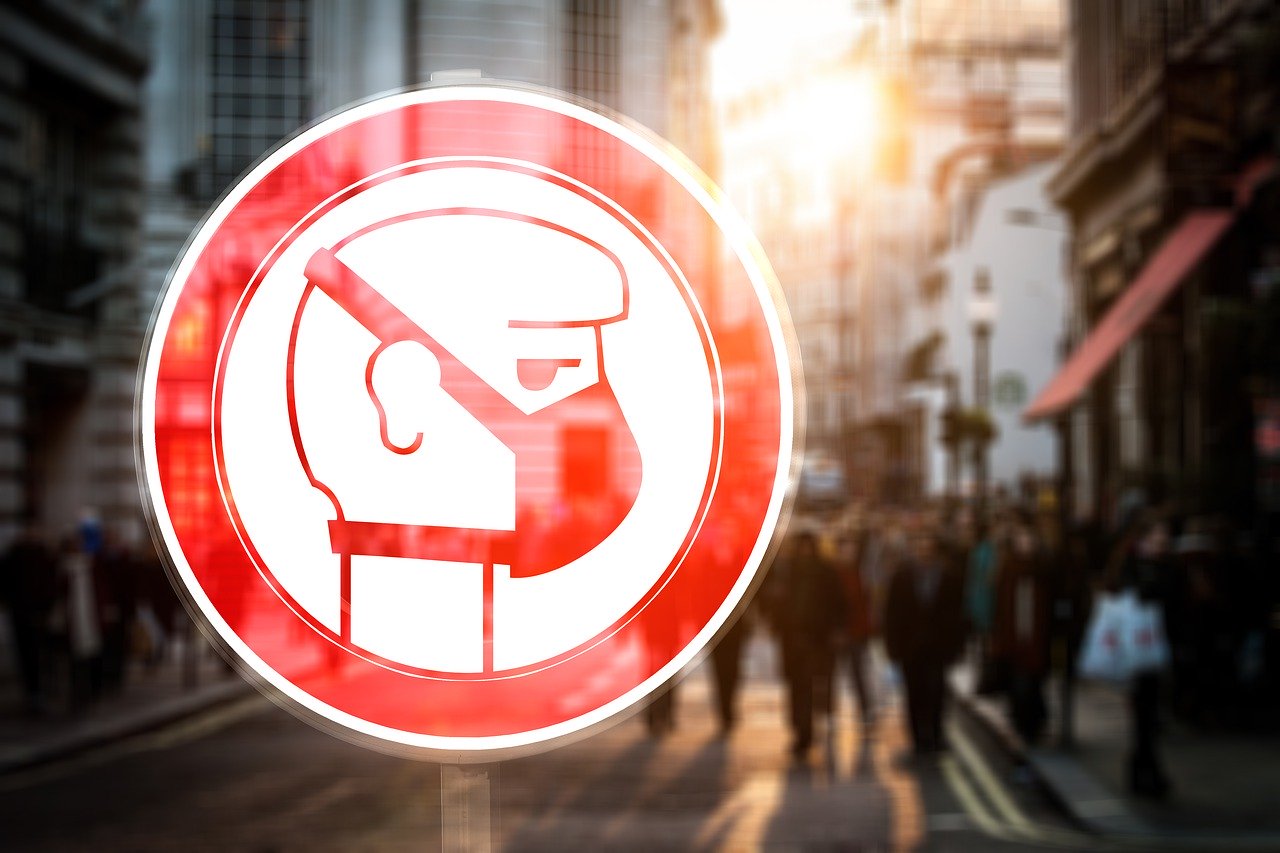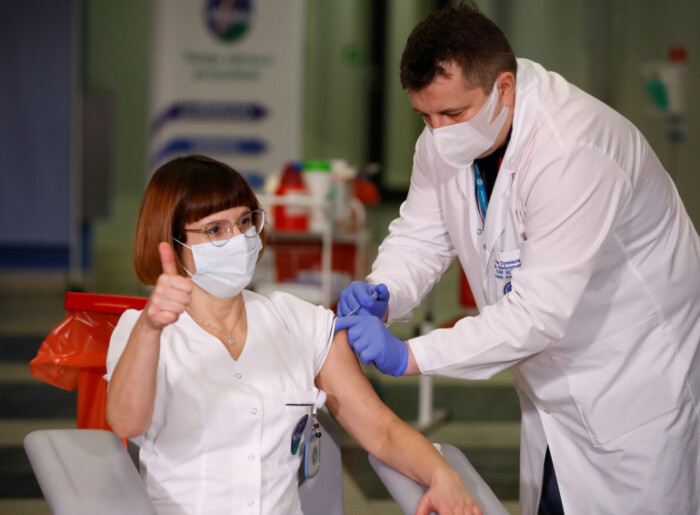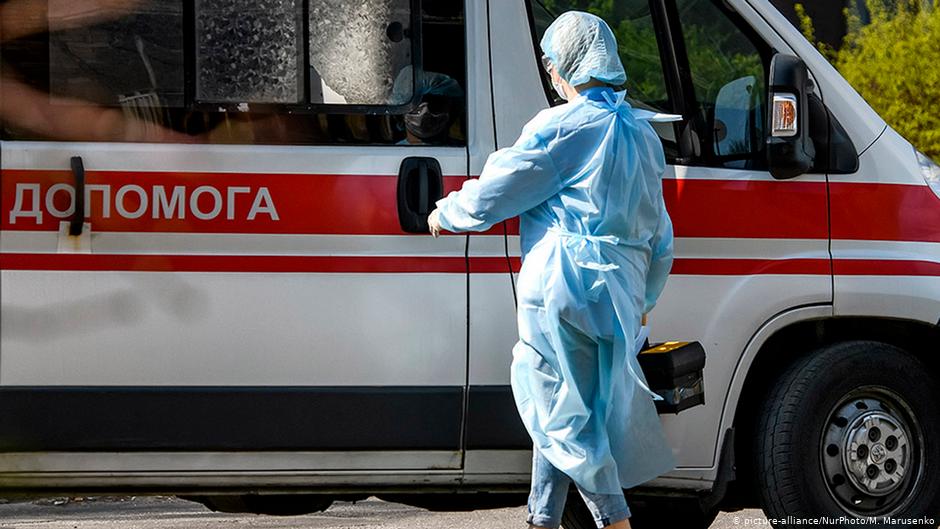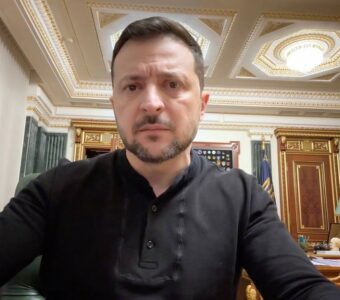Ukraine is anticipating a lockdown. When it's coming and how it will look
Rubryka analyzed why lockdown will be introduced in November, what the regulations will be and why it's not a solution to every problem.

What's the most discussed topic in Ukraine at the end of the summer? The start of a new school year? Is it President Zelenskyy's meeting with White House Chief Biden? Or maybe the dangerous military exercises of the Russian Federation and Belarus, which will happen in September?
No.
And it's not even a utility service tariff increase; we've already reluctantly accepted this.
Then what?
Introducing another lockdown in November was announced by Chief Sanitary Doctor Ihor Kuzin.
"According to the scenario we're currently moving towards, a new lockdown can be introduced approximately in November," Kuzin stated, adding that if Ukrainians vaccinate and adhere to the social distance, the lockdown can be postponed to December-January or not introduced at all.
Although the overall logic is there — the number of patients exceeds 2 thousand for some time now, and autumn itself is a disease season — it's hard to understand why they want to introduce lockdown in November: many Ukrainians will recover from COVID, more citizens will get infected, and mortality is rising rapidly.
It's equally difficult to understand whether vaccinated Ukrainians will have any privileges compared to unvaccinated ones. And if so, how will they work? And if they do, how will it all turn out? The vaccine doesn't guarantee that a person isn't just a carrier and doesn't infect others.
And most importantly: did the authorities use the summer to strengthen the "medical defense" of Ukrainians, or did they simply take a breath after the spring lockdown, and have a rest? Are they looking into the bitter autumn now and being anxious, while blaming many holidays for them failing to perform the planned 10 million vaccinations during the summer?
There are many questions. The answers, if any, haven't been announced yet.
Therefore, Rubryka decided to analyze the issues together with the former Head of the Sanitary and Epidemiological Service (SES) Sviatoslav Protas and infectious disease specialist and strategist Vadym Aristov.
Does lockdown work?
Yes.
During the winter lockdown, administered on January 8-25, 2021, Ukraine managed to reduce the COVID-19 incidence.
The then Head of the Ministry of Health Maksym Stepanov said that during the last week of restrictions, they detected 14 thousand fewer infection cases than before. And the number of patients recovering from the disease at the time of ending lockdown exceeded the number of hospitalized.
"This lockdown has paid off," President Zelenskyy summed up the restrictions.
Prime Minister Shmyhal took the same position, declaring that the situation with the disease had stabilized.
However, the expert community was skeptical both then and now. And not about the effectiveness of lockdowns as such, but the feasibility of their introduction.
Lockdown isn't perfect
"Lockdown is the most expensive and absurd method of overcoming the waves of the epidemic. It certainly works, but in its sense, it's the loss of the last barricade. It can be introduced only after more reasonable methods have been developed. And we don't use them," Vadym Aristov explains the essence and theory of using lockdowns.
He also notes that even though the pandemic has been going on for the second year, the Government hasn't yet created institutions that would perform the functions of "smartly" overcoming COVID-19. These include tracking the contacts of infected people and working with them further to prevent the spread of the disease.
"On paper, we now have disease control and prevention centers. However, in reality, we don't investigate the contacts of the infected, don't search for people with whom the patient has been in contact for the past few days, and who are subject to quarantine and testing. Dispersing the epidemic can only be stopped by the fact that asymptomatic people who begin to secrete the virus end up in isolation as soon as possible," Aristov explains.
In support of his words, Aristov cites statistics on the spread of COVID-19 in Ukraine after a long weekend in late August, which shows an increase in the coefficient of test positivity to 8-10%, almost twice the WHO recommended value of 5%.
This, according to the infectious disease specialist, indicates that in Ukraine, "a lot of infected people are already at the stage of hospitalization," which is a consequence of the so-called "disease chains": when people who carry the disease in a mild form or even asymptomatic, infect a certain percentage of other people, who in turn infect others, and so on.
The infectious disease specialist believes it shows that "in Ukraine, we lost the opportunities of the summer period when the incidence rate was low and it was possible to debug contact tracking":
"As soon as the minimum increase in the number of daily cases began, the system immediately choked. And we see in the statistics only those who already need full medical care, but not others. This means that the incidence rate in Ukraine will flare up very quickly. And the fact that the weekly increase in hospitalizations was as much as 16.5%-18.4%, confirms this: the same rate of bed occupancy happened in February (when the speedup of the previous wave of the epidemic, which led to the lockdown introduction in early April – ed.)," says Aristov.
In this regard, he predicts that by the end of September the number of deaths from COVID-19 in Ukraine will double and reach about 120-140 cases per day: "And what's next, it will get worse, because the number of infected, and the death toll will only increase."
Total restrictions aren't expected
"Ukrainians are already used to lockdowns and treat them with understanding," Sviatoslav Protas comments on the announced lockdown.
At the same time, he emphasizes that the authorities' only task is not to involve politics in lockdowns, not to invent anything like the so-called "the weekend quarantine," which was last year, and "which people openly laughed at."
"I hope that the authorities will be smart enough not to step on the same rake to invent strange forms of lockdown and be guided only by accepted criteria for introducing restrictions. There's a mechanism for zoning the country depending on the level of morbidity in each area, we should act accordingly. We don't need too much creativity," Protas said.
However, he predicts that the autumn lockdown won't stop public transport, in particular the metro, because "it was clear from the beginning that the metro isn't a big threat due to a powerful ventilation system."
"I'm convinced that there will be no critical situation. Consequently, there will be no total restrictions, which were in the spring," Protas sums up.
Restrictions will be relaxed for the vaccinated. However, we shouldn't do it
"Incentives will be created for vaccinated citizens during the lockdown in the form of easier access to various services. However, we should remember that in addition to the individual benefits of each vaccinated citizen, this issue is also political, in terms of Viktor Liashko retaining a position in the Ministry of Health and international image of the government," Vadym Aristov notes.
He points out that this approach is already outdated, as world experience has shown that "quarantine benefits" for vaccinated people aren't able to affect the dynamics of the spread of infection because the vaccinated themselves "don't become safer."
It has already been proven, the infectious disease specialist continues, that vaccinated people can secrete the same amount of virus as unvaccinated people. And the advantage for society is only that on the 6th day of infection in vaccinated, this discharge begins to decrease, and on the 9th, it stops altogether.
However, he emphasizes, these 6 days are enough for a significant spread of the disease and the dispersal of the epidemic.
"What will happen if, say, in a cafe, there's only the vaccinated, but there are a few infected among them; they will infect many people around them. The meaning of lockdown in this case disappears," says Aristov.
However, an even worse solution is access to various establishments with the PCR test during a lockdown: "First, the result of this test cannot guarantee safety. This is confirmation that it's not specific now, but, say, 2 days ago the person didn't spread the virus. And secondly, if a person doesn't yet have vaccine protection, they'll catch the virus and have a much higher risk of severe illness and death."
Sviatoslav Protas holds the same opinion.
Assuming that the authorities could relax the quarantine restrictions for vaccinated people, he stressed that "vaccinated people are the same vectors of infection as unvaccinated people": "They may be sick in a mild form or not at all, but they'll still spread the virus."
At the same time, Protas notes that such a practice will not succeed in Ukraine, as "any forms of discrimination don't take root in Ukrainian society."
As an example, he recalls the absolute disapproval of the rule that applied during the first lockdown in the spring of 2020, according to which people with dogs were allowed to walk in the parks but citizens with children were banned from walking there. Protas emphasizes: if then everything went smoothly, "then for the second time such a people" will not swallow it.
"Such things are perceived very cautiously and negatively in our country. Therefore, the authorities need to be very careful and not play with such sensitive things for them, because our society will not forgive the attack on their rights and freedoms," he said.
Why lockdown will be introduced in November, although the incidence is growing now?
"The spread of COVID-19 is gaining momentum, so the question to the government is one: does it plan to build the necessary anti-epidemic institutions to fight it fully? For now, based on the statements of the Minister of Health and the Chief Sanitary Doctor, we can make only one conclusion: by November, the government intends to ignore the situation," Vadym Aristov says.
Such a plan, he continues, means that until introducing the lockdown, patients will try as much as possible not to be hospitalized: "To demonstrate the absence of the collapse of the health care system."
At the same time, the infectious disease specialist notes that the Government was preparing for such a development during the summer: "Local authorities were given appropriate instructions. This is evidenced by the purchase of oxygen concentrators, which, although, are low-power, can support people."
"In other words, people with moderate and severe disease will try to keep these concentrators at home, and it will provide good indicators of hospital occupancy. And it's very bad because it will increase mortality. Because concentrators don't treat patients, medical departments with qualified staff treat them. And due to preserving the yellow or orange zone, the incidence will continue to accelerate," Aristov emphasizes.
In summary, he stressed that to overcome COVID-19, the state should intensify anti-epidemic measures and create missing institutions: "It's not just about lockdowns. It's about investigating the contacts of infected people, introducing digital systems for registering visitors to crowded places, and increasing PCR testing at least twice. And for this, we need not buy expensive tests abroad, but finally to establish our cheap production."


